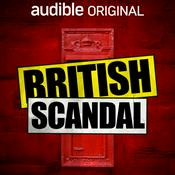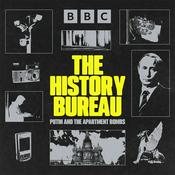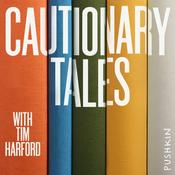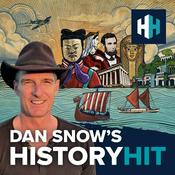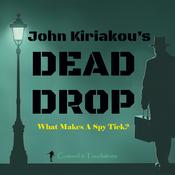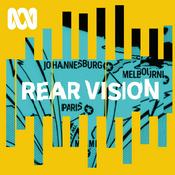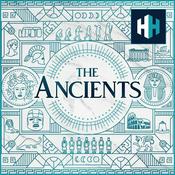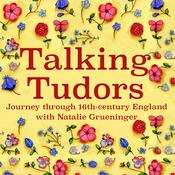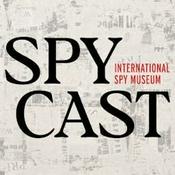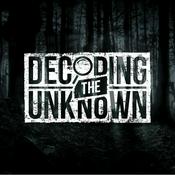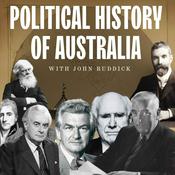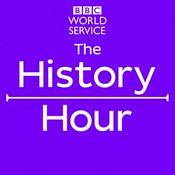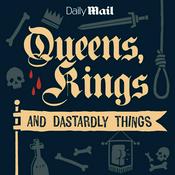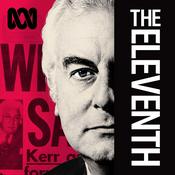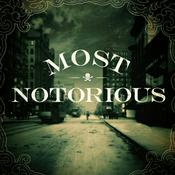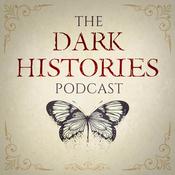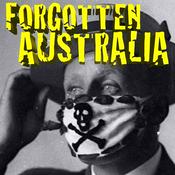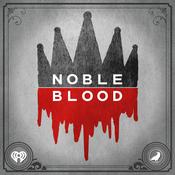15 episodes
- "Ask a man whether women should wear slacks and the answer is almost certain to be a firm 'No.'" How did women get to wear the trousers? Ros Taylor talks to fashion expert Belinda Naylor and Purna Sen, who wore trousers to her sixth form in 1978 – and was thrown out.
Belinda Naylor is a producer with an MA in fashion curation. Her Instagram, where you can find some of her favourite women in trousers, is @fashion_chatter.
Purna Sen is the former head of human rights at the Commonwealth Secretariat and a visiting professor at London Metropolitan University.
The extract from the Manchester Guardian in 1952 is voiced by Seth Thévoz.
The clip from The Seven Year Itch starring Marilyn Monroe is available on YouTube.
Man Alive: The Office Christmas Party (1970) is also on YouTube.
In 2002 the Guardian explained why schools could still choose whether to impose skirts. I also drew on Amy Gower's doctoral thesis, Schoolgirls, identity and agency in England: 1970-2004, University of Reading, 2021.
Lego has pictures of its early minifigures. - In 1948 Britain declared an Emergency in Malaya
It wasn't really an emergency. It was a guerrilla war.
And Britain would spend 12 years trying to drive communists out of its territory. What were we doing there?
Ros Taylor talks to Open University history professor Karl Hack and Economist bureau chief Dominic Ziegler about what the UK did in Malaya, and why Singapore cultivates positive memories of British occupation.
The Imperial War Museum's exhibition Emergency Exits: The Fight for Independence in Malaya, Kenya and Cyprus is on until 26 March.
Karl Hack is Professor of Asian and Imperial History at the Open University. He is the author of The Malayan Emergency: Revolution and counterinsurgency at the end of empire (Cambridge University Press).
Dominic Ziegler is the Singapore bureau chief at The Economist. Faris Joraimi's writing is here.
Footage of Australian soldiers in Malaya comes from a public relations film at the Australian War Memorial YouTube channel.
Lee Kuan Yew's 1989 speech on immigration is on YouTube.
Seth Thévoz voiced James Griffiths, secretary for the colonies, Anthony Eden (both in 1951) and Ernest Popplewell, the MP for Newcastle-upon-Tyne, in 1952. All three speeches are in Hansard.
Singapore's Heritage Trail tells the story of the second world war there. Freedom House publishes an annual report on Singapore. The British Army Review ran a special edition on the Malayan Emergency in 2018. - 'Oh, bugger orf!' We all know Received Pronunciation when we hear it. But what makes this accent distinctive? Why do people still pay to learn how to speak RP – and does it really bring the advantages it used to?
Ros Taylor talks to voice coach and actor Alix Dunmore and Professor of Phonetics Jane Setter about how to spot an RP speaker – and how the accent has changed over the past century.
Speeches by Lord Brabazon of Tara and Lord Wedgwood are taken from a Lords debate in 1943 and are voiced by historian Seth Thévoz.
Alix Dunmore runs Alix Dunmore Accent Coaching.
Jane Setter is Professor of Phonetics at the University of Reading. She is the author of Your Voice Speaks Volumes: It's not what you say but how you say it, the Cambridge Handbook of Phonetics and the Oxford Handbook of Language and Prejudice, as well as co-editor of the Cambridge English Pronouncing Dictionary.
Queen Elizabeth II's 1957 Christmas speech is available at the Royal Family YouTube channel. Prince William' interview is here. 1943 BBC Archive audio is on Facebook, as is Daniel Craig reverting to Scouse. The BBC has investigated how Queen Elizabeth's accent changed during her reign. Stephen Fry, an RP speaker, hosted an entertaining episode of Fry's English Delight about spoken English. - No one dies of diphtheria or polio in Britain any more. Since World War Two, we've virtually wiped out the diseases that used to kill tens of thousands of children every year. But rolling out a vaccine isn't always easy.
Ros Taylor talks to public health historian Gareth Millward and Stuart Blume, the author of Immunisation, about jabs and why some people refuse them.
Gareth Millward is an Assistant Professor at the University of Southern Denmark in Odense and the author of Vaccinating Britain: Mass vaccination and the public since the Second World War.
Stuart Blume is an Emeritus Professor at the University of Amsterdam and the author of Immunization: How Vaccines Became Controversial.
Diphtheria Immunisation and Big Whoop are on YouTube. Surprise Attack is at the Wellcome Collection. Polio Diagnosis and Management is at the BFI.
I also drew on the National Library of Medicine, the Science Museum and the Office for National Statistics. - It's built for cars. The buses are baffling. But it's got the most energy efficient housing in Britain. What did it take to build a city from almost nothing? And a university where there are no students on campus?
With architectural historian John Grindrod, Ros Taylor tells the story of Milton Keynes and the Open University.
With thanks to John Grindrod, the author of Iconicon, Concretopia and Outskirts and the presenter of Monstrosities Mon Amour. His forthcoming book, Tales of the Suburbs, on LGBTQ people in suburbia, is out in February 2026.
Seth Thévoz read Lords speeches by Baron Richard Mitchison and Lord Gerald Gardiner, both in Hansard.
Milton Keynes: Shopping as it Should Be and an ITN report from 1967 are available on YouTube. Clips of Harold Wilson and Jennie Lee are at the Open University Digital Archive, which explains the OU's founding. This was an invaluable source of OU history. I also drew on the vast resources at the Milton Keynes Living Archive and the original Plan for Milton Keynes.
More History podcasts
Trending History podcasts
About More Jam Tomorrow
From teeth to Trident — post-war British history as you've never heard it before.
In each episode, Ros Taylor delves into the truth about how our lives changed after World War Two — and what it means for politics now.
Now independent, this is the sequel to the hit "Jam Tomorrow" podcast.
Podcast websiteListen to More Jam Tomorrow, British Scandal and many other podcasts from around the world with the radio.net app
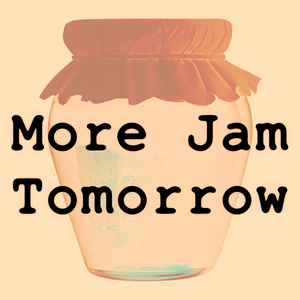
Get the free radio.net app
- Stations and podcasts to bookmark
- Stream via Wi-Fi or Bluetooth
- Supports Carplay & Android Auto
- Many other app features
Get the free radio.net app
- Stations and podcasts to bookmark
- Stream via Wi-Fi or Bluetooth
- Supports Carplay & Android Auto
- Many other app features


More Jam Tomorrow
Scan code,
download the app,
start listening.
download the app,
start listening.

